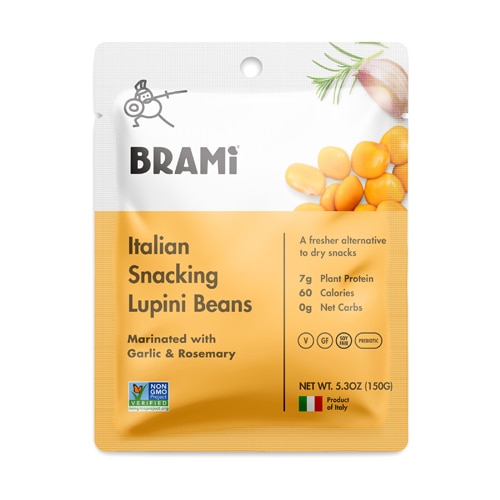[vc_row][vc_column][vc_column_text]The much-hyped
Mediterranean diet, which features mostly plant-based foods and healthy fats, may leave a bad taste in the mouths of environmentalists.
The Mediterranean diet “is acknowledged worldwide to be among the best healthy dietary patterns,” according to an
article published by the research journal Nutrients, with studies underscoring health benefits such as prevention of diabetes, obesity, cancer and cardiovascular disease.
But although the Mediterranean diet may be healthy for humans, it might not be so healthy for the environment.

A
study published in March 2023 by the International Journal of Environmental Research and Public Health found that the entirely plant-based
vegan diet had about 44% less of an environmental impact than the Mediterranean diet. Nonetheless, both diets pack a similar nutritional punch.
The study’s findings suggest “that the more plant-based the diet is, the less it will impact the environment,” the researchers write. “This information is noteworthy in light of how many countries show a diet rich in animal foods and how much this represents a global risk to sustainability.”
To compare the environmental impacts of the Mediterranean and vegan diets, the researchers relied on life-cycle-assessment software, which analyzes the environmental effects of a product or service. The researchers based their study on a theoretical one-week, 2,000-calorie-a-day version of each diet.
The three key factors that the researchers evaluated were:
- Human health
- Ecosystems
- Resources
The study found that the 10.6% of calories derived from animal products in the Mediterranean diet were responsible for nearly half (47%) of the diet’s impact, with meat representing the biggest factor (around 30%).
Particularly noteworthy are that the impact of legumes was 84% lower than “mixed” meat, and the impact of soymilk was 79% lower than cow’s milk. Meat and dairy are allowed in the Mediterranean diet, while the vegan diet excludes them.
“There is enough evidence that
plant-based diets are both adequate and protective against the most widespread chronic diseases in the developed world. However, food systems should also be economically viable and improve food security, prevent malnutrition and reduce environmental degradation,” the researchers write.
Production of animal-based food “represents a significant burden for the planet,” they conclude.
An opposing viewpoint on the Mediterranean diet
A
study published in 2022 in the research journal Sustainable Production and Consumption arrived at a different conclusion about the Mediterranean diet.
In an evaluation of five plant-rich diets — Mediterranean, vegetarian, vegan, pescatarian and
flexitarian/semi-vegetarian — researchers concluded that the Mediterranean diet had the most positive impact.
Although the Mediterranean diet earned the third best score for its combined impact on the environment, human health and animal welfare and the vegan diet earned the best score, the Mediterranean diet gained an overall edge. A survey conducted as part of the study found that adults leaned most toward adopting the Mediterranean diet and least toward adopting the vegan diet.
As a result of these findings, the researchers deemed the Mediterranean diet to be the most “realistic” approach to reducing our “food footprint.”
Mediterranean diet vs. vegan diet - other differences to note
Environmental impact isn’t the only area where the Mediterranean and vegan diets differ.
For instance, a
study published in 2021 by the Journal of the American College of Nutrition indicated that a low-fat vegan diet delivered better results for weight loss,
cholesterol levels and insulin sensitivity than the Mediterranean diet.
“While many people think of the Mediterranean diet as one of the best ways to lose weight, the diet actually crashed and burned when we put it to the test,” study author Dr. Neal Barnard, president of the Physicians Committee for Responsible Medicine,
says in a news release. “In a randomized, controlled trial, the Mediterranean diet caused no weight loss at all. The problem seems to be the inclusion of fatty fish, dairy products, and oils. In contrast, a low-fat vegan diet caused significant and consistent weight loss.”
Nonetheless, both diets can be effective.
“Both diets are fairly different, and I wouldn’t say one is better than the other one,” Roxana Ehsani, a registered dietitian nutritionist,
told the Live Science website. “If followed correctly, both can be nutritious diets.”[/vc_column_text][/vc_column][/vc_row][vc_row][vc_column][vc_text_separator title="Featured Products" border_width="2"][vc_row_inner equal_height="yes" content_placement="middle" gap="35"][vc_column_inner width="1/3"][vc_single_image image="166359" img_size="full" alignment="center" onclick="custom_link" img_link_target="_blank" css=".vc_custom_1682374544847{padding-right: 7% !important;padding-left: 7% !important;}" link="https://www.vitacost.com/simple-truth-plant-based-mediterranean-style-bowl"][/vc_column_inner][vc_column_inner width="1/3"][vc_single_image image="166358" img_size="full" alignment="center" onclick="custom_link" img_link_target="_blank" css=".vc_custom_1682374559586{padding-right: 7% !important;padding-left: 7% !important;}" link="https://www.vitacost.com/mantova-grandaroma-truffle-extra-virgin-olive-oil"][/vc_column_inner][vc_column_inner width="1/3"][vc_single_image image="166357" img_size="full" alignment="center" onclick="custom_link" img_link_target="_blank" css=".vc_custom_1682374577366{padding-right: 7% !important;padding-left: 7% !important;}" link="https://www.vitacost.com/freestyle-snacks-kalamata-olives-extra-virgin-olive-oil"][/vc_column_inner][/vc_row_inner][/vc_column][/vc_row]
 A study published in March 2023 by the International Journal of Environmental Research and Public Health found that the entirely plant-based vegan diet had about 44% less of an environmental impact than the Mediterranean diet. Nonetheless, both diets pack a similar nutritional punch.
The study’s findings suggest “that the more plant-based the diet is, the less it will impact the environment,” the researchers write. “This information is noteworthy in light of how many countries show a diet rich in animal foods and how much this represents a global risk to sustainability.”
To compare the environmental impacts of the Mediterranean and vegan diets, the researchers relied on life-cycle-assessment software, which analyzes the environmental effects of a product or service. The researchers based their study on a theoretical one-week, 2,000-calorie-a-day version of each diet.
The three key factors that the researchers evaluated were:
A study published in March 2023 by the International Journal of Environmental Research and Public Health found that the entirely plant-based vegan diet had about 44% less of an environmental impact than the Mediterranean diet. Nonetheless, both diets pack a similar nutritional punch.
The study’s findings suggest “that the more plant-based the diet is, the less it will impact the environment,” the researchers write. “This information is noteworthy in light of how many countries show a diet rich in animal foods and how much this represents a global risk to sustainability.”
To compare the environmental impacts of the Mediterranean and vegan diets, the researchers relied on life-cycle-assessment software, which analyzes the environmental effects of a product or service. The researchers based their study on a theoretical one-week, 2,000-calorie-a-day version of each diet.
The three key factors that the researchers evaluated were:



